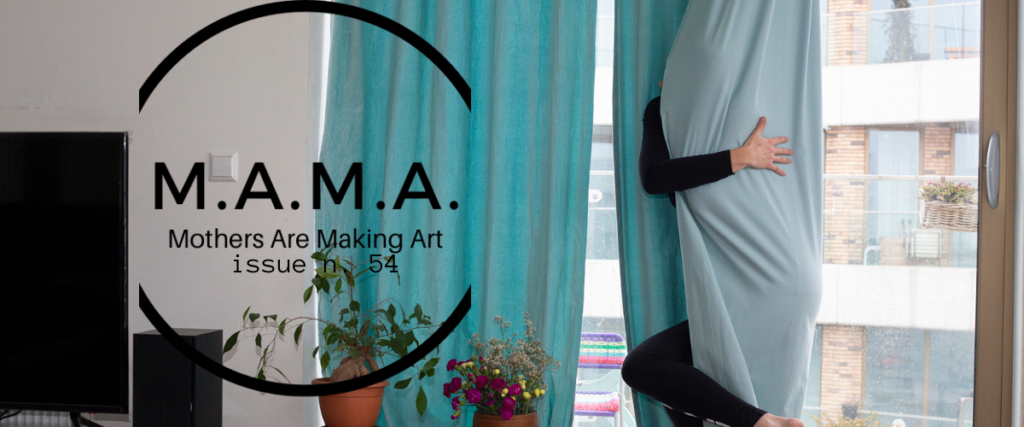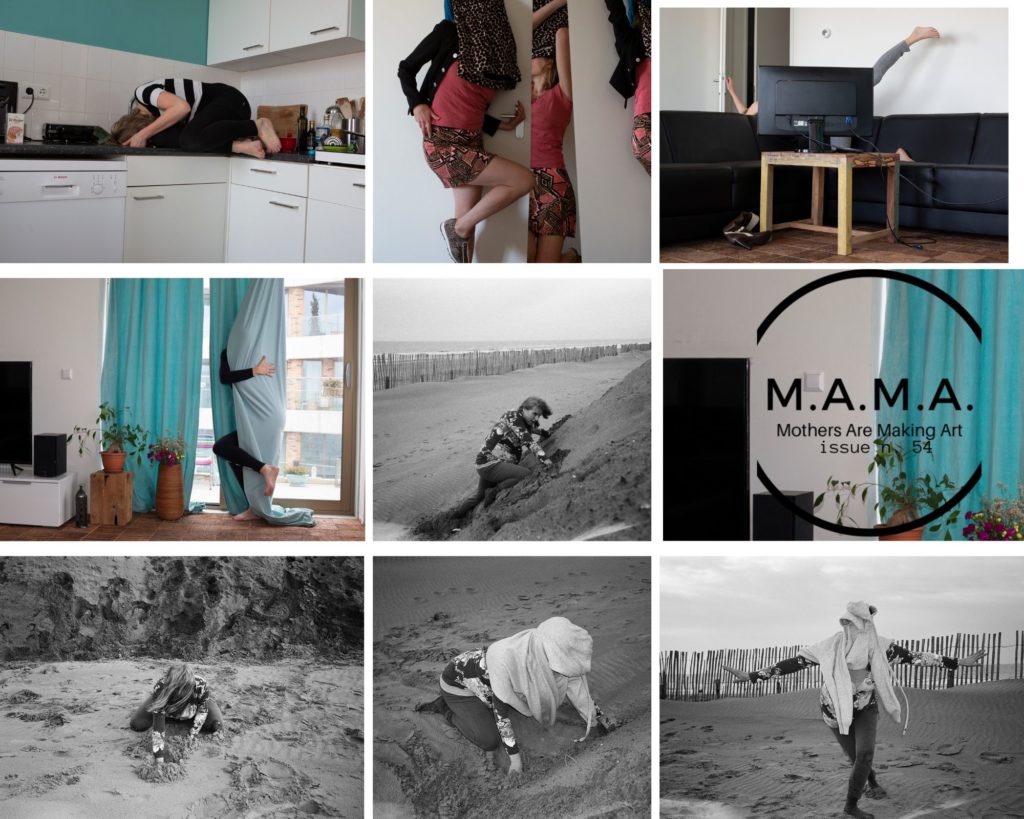
M.A.M.A. issue 54 – Mathilde Jansen, Art, and Lisa DeSiro, Poetry
Mathilde Jansen

Mathilde Jansen hails from Deventer (at the IJssel river valley), in the Netherlands. She graduated from the Royal Academy, The Hague (KABK) in 2006. Dar es Salaam has been a second home and source of inspiration. In 2016 she completed the postgraduate studies Education in Arts (Beroepskunstenaar in de Klas) at the Amsterdam School of the Arts. Her primary photographic practice seeks the universal value of natural resources and minerals as a means of tracing the complex relationship between people and the global economy. She aims to create new perspectives from which to examine social structures and the connections between the local and global, which, for Jansen, form the basis of human attitudes, social positioning and intercultural communication. In her practice Jansen consciously interweaves market-driven ways of thinking with an integrated holistic vision of nature, teasing out the borders between the two. Using experiments in analog photography, incorporating awe-inspiring constructions on location and manipulating medium format negatives, she creates a dynamic interplay between subject matter and representation, navigating areas as diverse and all-encompassing as nature and ecology, spirit, and community. Jansen envisions trees and organic structures being planted and preserved in urban spaces, gardens, national parks or anywhere – on a micro or macro level. Her current Landscape projects represent this interplay and interaction between modernization, wilderness and consciousness. Read more about her at www.mathildejansen.com.
How does motherhood, reproductive identity, or experience inform your work?
Through my recent Landscape projects such as Potential Landscapes, I’ve escaped from the limitations that single motherhood has put onto my life (as a former full-time art and freelance photographer). I was a fully single mom, without a co-parent or similar support, from 2011-2019. All of a sudden, I couldn’t easily travel for an art project, even freelance work in short term or in the evening was hard to undertake. With my Dutch-Tanzanian daughter Daleila, I’ve enjoyed a great time, but the stress and urgency of side jobs, distracted my mind and made me focus too much on external and organizational matters instead of the essence of my life and purpose: what do I feel, need, love and desire (to share in the community)?
To my surprise, I’ve witnessed that people often prefer to judge rather than to offer support. As if my vulnerability triggered hidden fears in people, to stand alone. It takes courage to listen openly. I’ve felt connected to the continent during my time of single motherhood; I had to give up privileges, heal my romantic heart, get used to a more basic lifestyle and nurture my family with resilience. It made me grateful from within.
There came a turning point after meditating as a daily part of my self-care. This restored a creative flow of ideas and palpable steps in my day-to-day life. My resistance against my living circumstances transformed into acceptance and surrender. I truly enjoyed my life with my daughter and allowed any lovely outcome.
Besides that, I started to experiment with a technique, to manipulate my medium format nature (and portrait) photo-negatives with ink and organic substances, creating a new type of art photography from my home.
I’d like to highlight the power of neural networks and emotional connection, to expand inner space and outer or creative productivity. Which shifts the focus to the quality of relationships and inner connectedness, as a desired condition for reproduction, also in the form of raising a loving or healthy family.
Reproduction should ideally be a result of mutual interconnectedness in any way. It’s not a goal in itself, to me. Sharing a way of life which supports happy childhoods should be key. So (step)parenting is then a result of love, a responsible task for life and a desire for personal and communal growth, worthy of various forms of support or caring networks. I’d love to call this trans-parenting. There may be no doubt that all people are worthy of love and love-supporting rules and laws, if we can allow society to level up.As a mother in a family of five (our 3rd child will be born in ’23) I am pro diversity and pro taking social responsibility by free will.
Truthful and co-creative connections are my primal desire. Sharing a commitment with my partner, enables me to open up deeply and show my vulnerabilities and powers. Including my biological power to give life to new people born.
Women and men need evolving and daring relationships. I don’t want to exclude men or avoid male structures, instead I’m set to find new structures, regardless origin (or species), which are open to collaborate with (my) feminine and other energies. So we as people can flow in better directions.
Domestic Goddess:
In this series I’ve re-shaped my conditioned mind as a (by that time) single working mum, within the domain of my home as a studio.
My role as an artist is entangled with my household and that of a mother and woman. Am I seeing through the fabric of a curtain, or am I hidden behind it? Cleaning, dancing, resting and organizing at home feels as natural to me, as a walk in the forest. It connects me to my heart, body and mind, where intention, dust, touch, move and scents co-exist in an emotional space with walls, doors, closets and transparent windows. As a (former) single mum, our house started to become a spiritual cube to me. It is were we’ve survived and learned to surrender and thrive, from within.
By exploring my natural connection to my home as an extension of Earth and its resources, I’m letting go of old patriarchal structures in which feminine senses and intuitive powers have been dominated or exploited (for the benefits of a power system). In fact I’ve talked to my shower and been drinking water as if coming from a well or source.
In the history of the Netherlands, a natural or spiritual connection to nature has been repressed by the institutional Church for centuries, whilst supporting economical activities and slave trade of the State overseas. A lack of sensual and free emotional expression has caused abuse of (so called) exotic women or even children, without a mutual equal connection.
Nowadays, people tend to project a wild inner nature on (trans)gender diversity. Yet heterosexual mothers often remain ignored or invisible, because the debate about reproduction focuses on a lineair and statistic point of view, rather as the contagious power of love as a reproductive energy. And relationships built on free will and a symbiotic harmony.
Natural forces have first been rediscovered at home, to affect social and economical domains as well. It’s a subtle and playfully provoking process. Poet and Jungian psychoanalytic Clarissa Pinkola Estés describes myths and stories in ‘Women who run with the wolves’.
Domestic Goddess plays with various interpretations of ‘the female archetype’ vocabulary. For people from western or market oriented countries this title might refer to a fantasy world or socially submissive status, defining the role of a woman or tasks in a household in a more less static way. Whereas in various cultures and beliefs a ‘family’ spirit is associated with social integrity or emotional responsivity and implements these qualities on a professional level as well. Nevertheless, this series isn’t about left or right, but about exploring the subconscious and act from that source in daily reality, within your community and living material surroundings too.
Mothership, part 1: Symbioscenes
“As the symbiotic interconnections come back into the soil, the ecosystem, and the macrobiomes, the neural and emotional connections return to the psyche to a form of health. What is new in this field is the discovery that many of the foundational forces are invisible to us. We were simply ignorant of them. … The fact that, for the bulk of our time on this Earth, humans have not had to analyze or even be conscious of our positive relationships to the Earth accounts to some extent for our not naming or recording them in the languages that have coalesced to become the English language. They were taken for granted when the world gave generously and continuously of these connections.
As the Anthropocene has peeled away the protective layers that held our positive Earth emotions in place, we have come to appreciate and value their role in our psychic health. I have illustrated this loss with my own example of witnessing the destruction of endemism and my endemic sense of place in Western Australia.”
– Eco philosopher Glenn A. Albrecht (Earth Emotions, page 194-195)
Through the container project Mothership, I’m exploring how to navigate in my working and family life, pregnancy and motherhood, while evolving a conscious relationship with the Earth as a symbiosis. My first analogue photographs of a happening at the beach, Symbioscenes, will take part of a multimedia video work which is in progress, as the start of my artist residency in Motherhood, with the long term project Mothership.
Our consciousness is rooted in the soil (under our feet) and skies (beyond our control). What is the message of inner voices that we construct and perceive our reality from? I’ll edit unique audio fragments to play with daily, social structures and invisible powers. Such as eye opening fragments of my grandmother’s diary, which I got after she passed away.
Mothership intertwines female family lines and a psychological connectedness within a natural environment. I’ll visually explore the relationship between my (sub)consciousness and the way my body is one with nature.
The project forms a dialogue between my changing life, body and emotional system, but also seeks for new meaning within a collective consciousness. To find a dynamic and valuable truth which is solid enough to be able to build upon the concept of a symbiocene, a term by Glenn Albrecht.
Lisa DeSiro
Living Room
My mother seated in her corner chair, stitching.
I bring what she requests, a tissue
or a glass of wine, set it on the side table
next to the latest Better Homes and Gardens.
Her deft fingers maneuver the needle and thread.
My father supine, snoring, on the couch.
I squeeze onto one end, avoiding his feet
until he wakes and makes popcorn
and shares with me. He changes the channel.
We watch Jeopardy, shouting question-answers.
My brother is out with friends or on a date
or at rehearsal with his band. So for this evening
I’m an only child.
And I leave my parents,
go upstairs, shut my door, cover my ears,
headphones plugged into my Walkman.
Do I hear him come home?
Do I hear them say good night?
Listen—
down in the dark deserted living room
above the fireplace mantel
the plastic gold Syroco clock
click click click click
clicks like a metronome, relentless
as a heart we couldn’t stop—
Originally published in MER 18 – HOME
Lisa DeSiro is both a writer and a musician. She works as a professional accompanist and a freelance editor/proofreader. Her collections include Simple as a Sonnet (Kelsay Books, 2021), Labor (Nixes Mate Books, 2018), and Grief Dreams (White Knuckle Press, 2017). Read more about her at thepoetpianist.com.
